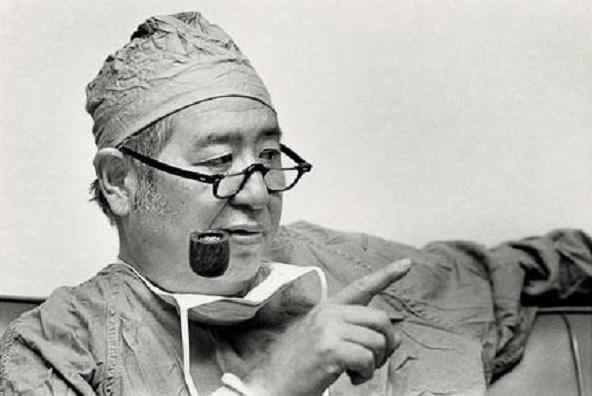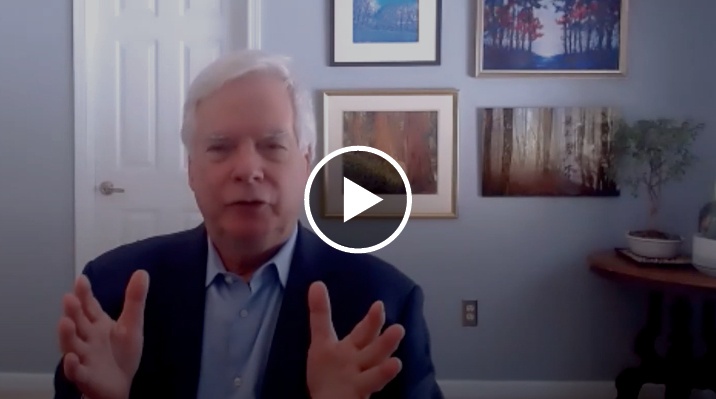When the Cancer History Project launched in January, co-editors Otis Brawley and Paul Goldberg laid out a plan to build a lasting resource for the history of oncology (The Cancer Letter, Jan. 8, 2021). It was “the beginning of a process of storytelling.”
Since then, we have published 11,805 articles—of which 11,428 are The Cancer Letter archives. Of the other 377 articles, published by our 43 contributors, 150 are primary sources, 138 are profiles of people, and 21 are profiles of institutions.
The Cancer History Project has been growing at a rate of over 50 articles a month, and our readers keep exploring—the average visitor reads eight articles per visit. We’ve reached approximately 31,000 unique visitors, who have read our articles 500,000 times.
To help The Cancer Letter readers follow along, we launched the In The Archives column, which profiles the latest articles for the week and highlights topics from the Cancer History Project editorial calendar.
Our work has gone beyond building a platform for contributors to help preserve their histories. We have taken an active role in recording oral histories, digging up unpublished books, digitizing archives, and uncovering stories that could otherwise have been lost.


You can read about Joseph H. Ogura, an otolaryngologist who fled California during World War II to avoid internment. Ogura, along with his iconic (but empty) pipe, helped develop partial laryngeal surgery in which one of the two vocal cords is left intact.
Or Eva Bateman Noles, an oncology nurse and historian who was the first Black graduate of her nursing school, graduating first in her class—but was unable to attend her own graduation party at a whites-only hotel. She went on to become chief of nursing services and training at Roswell Park.


Or, in case you needed a reminder that even Donald Pinkel, “who introduced the word ‘cure’ to cancer,” got rejection letters, read a letter from the Journal of Pediatrics rejecting his 1971 article, “Drug Dosage and Remission Duration in Childhood Lymphocytic Leukemia,” later published in Cancer—side by side with a glowing personal letter on MD Anderson letterhead from Emil Frei about the same article.
Looking at our most-read articles, it’s apparent that our readers and contributors share our interest in storytelling. There is a clear focus on the people and the stories that shape our history—and inform science. Here are the top 5:
- Video: Amy Reed, physician and patient who “moved mountains” to end widespread use of power morcellation
- Book: Simone’s Maxims: Understanding Today’s Academic Medical Centers
- Oral history: To NCI designation through difficulty: How KU’s Roy Jensen made it happen
- Remembering Jane Cooke Wright, a Black woman, who was among seven founders of ASCO
- Gordon Zubrod’s panoramic vision shaped modern clinical cancer research
Our goal continues to be to create a starting point for a broader discussion of history and community, and, with that in mind, on July 29th we ran our first virtual panel, featuring cancer center directors from the first three NCI-designated Comprehensive Cancer Centers. A summary and recording of the panel is available here.
This is not a one year project, and it’s never too late to join us. To become a contributor, please contact admin@cancerhistoryproject.com. Our 2022 editorial calendar will be available soon.
Highlights
In honor of The Cancer Letter’s Summer Reading Issue, here is a selection of books and articles you might have missed, or might want to revisit at a leisurely pace:
Books


NEW: Cancer Crusade: The Story of the National Cancer Act of 1971, by Richard A. Rettig


Stairway of Surprise: A Biography of Kay and Gordon Zubrod, by Charles Gordon Zubrod


Simone’s Maxims: Understanding Today’s Academic Medical Centers, by Joseph V. Simone


Excerpt: A Biography of the Cancer Survivorship Movement: The March, by Judith L. Pearson
The Cancer History Project is looking for out of print or previously unpublished books, and will work with the rights holders to make the book available. Please contact us with suggestions.
Articles


Paul Calabresi: A Founder and Giant in the Field of Medical Oncology
By Cancer Center at Brown University


The Fukushima Daiichi nuclear accident: 10 years later
By Robert Peter Gale
Video: NCCN’s Bob Carlson talks about the day he stormed out of a meeting with transplanters
By The Cancer Letter
Primary Source: Learning From Disaster: Patient Safety and the Role of Oncology Nurses
By Oncology Nursing Society
Query Theory: A Tribute to Beatrice Mintz, PhD
By Fox Chase Cancer Center
Archives
The Donald Pinkel Archive
In collaboration with his daughter, Mary Pinkel, the Cancer History Project is preserving documents from Donald Pinkel’s personal archive.
NCCS Networker, Vol. 1-11 (1987-1997)
The National Coalition for Cancer Survivorship has provided a rich archive of its newsletters: the NCCS Networker, a quarterly publication. Read the first issue: March 1987.
The NCI Oral History Project
A growing collection of oral histories, contributed by NCI.
The Cancer Letter, Vol. 1-40 (1973-2014)
To launch the Cancer History Project, The Cancer Letter archive has been made open access for the first time in our 47-year history.
Other ways to explore
Celebrating diversity
- BIPOC Impact: articles about Black, Indigenous, and People of Color oncologists, researchers, and advocates.
- Women in oncology: women who helped shape our field.
Popular topics
- Advocacy
- Bone Marrow Transplant
- Breast Cancer
- Cancer Center
- Childhood Leukemia
- Clinical Trials
- Drug Development
- Founders
- Funding
- Genetics
- Health Disparities
- Hematology
- Immunotherapy
- Leukemia/Lymphoma
- Obituaries
- Oncology Nursing
- Oral History
- Photo archives
- Primary sources
- Radiation Oncology
- Research
- Surgical Oncology
- Survivor Stories
- Videos
This column features the latest posts to the Cancer History Project by our growing list of contributors.
The Cancer History Project is a free, web-based, collaborative resource intended to mark the 50th anniversary of the National Cancer Act and designed to continue in perpetuity. The objective is to assemble a robust collection of historical documents and make them freely available.
Access to the Cancer History Project is open to the public at CancerHistoryProject.com. You can also follow us on Twitter at @CancerHistProj.
Is your institution a contributor to the Cancer History Project? Eligible institutions include cancer centers, advocacy groups, professional societies, pharmaceutical companies, and key organizations in oncology.
To apply to become a contributor, please contact admin@cancerhistoryproject.com.












